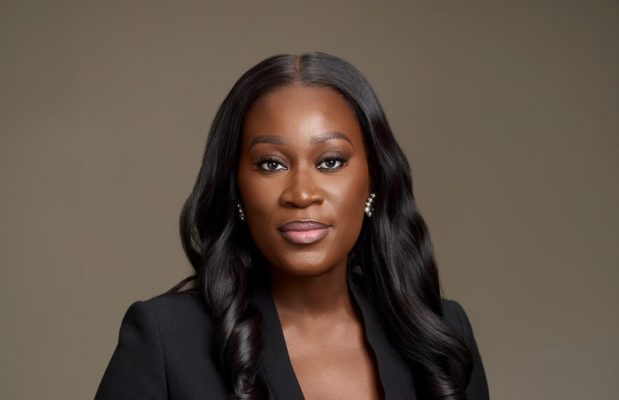The Toronto International Nollywood Film Festival (TINFF) 2025 has shone a global spotlight on Nollywood’s thriving talent pool, awarding the Five2 Media and Entertainment feature film, Extra Mile, with the prestigious Best Film by a Female Filmmaker – Nollywood. This remarkable achievement not only underscores the strength of Nigeria’s creative industries but also highlights the powerful stories African women are telling on the world’s biggest stages.
The Story Behind the Win
Produced by Joy Grant and Solate Ovundah-Akarolo—who also serves as Executive Producer—Extra Mile is a compelling exploration of friendship, betrayal, and the choices that define loyalty. Starring industry icons such as Mercy Johnson, Jim Iyke, and Lilian Esoro, the film delivers emotional resonance and nuanced performances, drawing audiences deeply into the personal struggles of its characters. For many viewers, the honest storytelling and creative direction were what set the project apart, not just its star power.
Nigerian Women Driving the Narrative
Nollywood’s reputation as a powerhouse of African cinema is widely known, but this particular recognition at TINFF carries broader implications. According to Producer Joy Grant, “TINFF’s recognition is an encouragement for female voices in Nollywood to keep breaking boundaries and telling stories that matter.” For years, female filmmakers in Nigeria have worked persistently to carve out their space amid persistent industry challenges—from funding hurdles to the broader disparities in the entertainment business. This award serves as a testament to their influence and the value of women-led storytelling in Nollywood.
Spotlight on Nollywood: Nigeria’s Cinema on a Global Stage
With thousands of films produced annually, Nollywood is already one of the world’s largest film industries by output. However, accolades from festivals like TINFF are helping local voices find global platforms, opening opportunities for new distribution deals, co-productions, and cross-cultural collaborations. For Ovundah-Akarolo, the meaning goes beyond personal achievement: “This isn’t just about prestige. It is about signalling a real change—female filmmakers in Nigeria aren’t just participating anymore; they are leading, innovating and being recognised for it.”
Local Perspectives: Why this Matters for Nigeria and West Africa
Speaking to Lagos-based film critic Tunde Oladipo, he explains: “What makes Extra Mile exceptional is the authenticity of its Nigerian context. Audiences at home and abroad are seeing a film that feels genuinely rooted in our experiences, yet capable of connecting with global viewers. We’re seeing a new era where African stories aren’t only travelling—they’re winning.”
- Industry Impact: Experts say that global recognition for local productions can encourage more investment in Nollywood, including training for young writers, directors, and technical staff.
- Women in Film: Awards like this also inspire other women in Nigeria and across West Africa to pursue creative professions, knowing their stories and perspectives matter.
- Economic Boost: The film sector contributes a significant amount to Nigeria’s GDP and provides thousands of jobs, from actors to set designers and marketers.
The Film’s Universal Appeal
At its core, Extra Mile transcends cultural boundaries. The themes—friendship, heartbreak, and resilience—are universal, yet deeply personal. Mercy Johnson’s and Jim Iyke’s performances are described by festival reviewers as “both weighty and tender,” bringing subtlety and compassion to complex roles. The film’s honesty about the push and pull of human relationships has resonated not just with African diaspora audiences in Toronto but with viewers worldwide, proving that Nollywood’s stories can stand shoulder-to-shoulder with global cinema.
TINFF Recognition: A Turning Point?
For many in the industry, this is less about a single victory and more about momentum. In the words of Oraye St. Franklyn, Canada-based communications lead for Five2 Media and Entertainment, “This award is dedicated to every member of the cast and crew who worked tirelessly to bring the vision alive—from the production assistants in Lagos to the editors and sound teams making sure every detail landed with impact. It proves what’s possible when Nollywood pools its collective talent.”
During a panel at TINFF, Ovundah-Akarolo noted that the global reach of African storytelling is dependent on consistent innovation and support. “We must continue leveraging our experiences while exploring universal themes. TINFF’s recognition marks a shift in how the world sees and values our creative output.”
Challenges and the Road Ahead for Nollywood
Despite this recognition, the industry faces persistent challenges. Funding, distribution, and structural inequalities still pose barriers, especially for female filmmakers. According to a 2023 report by the Nigerian Film Corporation, less than 25% of Nollywood films reaching international festivals are led by women. But endorsements, funding opportunities, and networks stemming from international awards are gradually tipping the scales.
Industry insiders recommend increased funding for local workshops, scholarships, and policies that prioritize inclusivity in film production. With increased streaming opportunities and improved local cinema infrastructure, Nollywood may soon bridge the gap between quantity and consistent international recognition for quality.
The Ripple Effect: West African Storytelling Going Global
While Nigeria is often the focal point of Nollywood conversations, this moment echoes across Ghana, Senegal, and other West African creative hubs. Emerging filmmakers are watching closely, with several Ghanaian and Francophone films also entering the global circuit. Partnerships across the region will only strengthen Africa’s cinematic presence worldwide, creating a richer pool of stories and collaborations.
Audience Reactions and the Importance of Representation
Nigerian and African viewers on social media have widely celebrated the win. Many spoke of feeling “seen” by the nuanced, authentic portrayal of West African relationships in Extra Mile, while others commended the dedication to quality despite limited resources. As Twitter user @_AdaNnaya wrote, “When African women tell their own stories, you can feel the difference. This is our win.”
Representation continues to matter at every level—on screen and behind the camera. By opening doors for diverse perspectives, Nollywood ensures future generations can see themselves, their cultures, and their values reflected and respected worldwide.
Looking Forward: What Comes Next?
Nollywood is on the cusp of a new era, one in which female filmmakers take bold steps into spaces previously closed to them. The win for Extra Mile reinforces the power of stories told from a woman’s point of view—stories that are broader, bolder, and richer for their authenticity.
For Nigerian, Ghanaian, and West African audiences, this is not just a celebration of one film but a promise of what’s possible when homegrown talent is recognised and uplifted. With streaming services seeking authentic African stories and interest from international distributors growing, the road ahead is filled with possibilities for more homegrown narratives to shine on screens worldwide.
Do you think Nollywood is finally getting the global respect it deserves? How can African filmmakers keep pushing boundaries? Share your thoughts in the comments below and let’s keep the conversation going.
Need help or have questions about cinema, casting, or anything entertainment? Reach out at support@nowahalazone.com.
Join the conversation with movie lovers like you! Drop your comments, share this with your circle, and follow us for more Nollywood and entertainment updates on
Facebook,
X (Twitter), and
Instagram.









